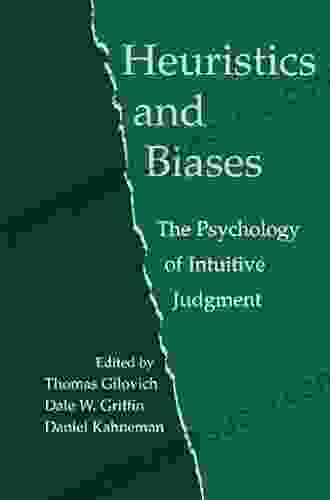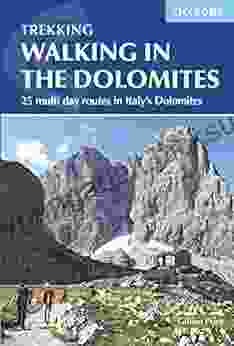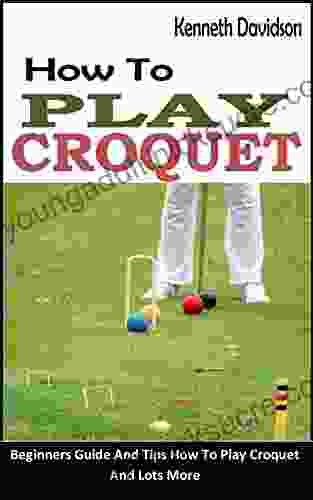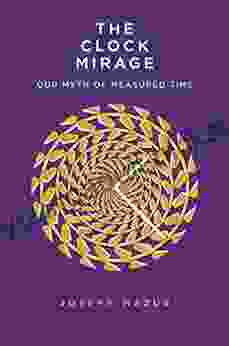The Psychology of Intuitive Judgment: A Comprehensive Exploration

Intuitive judgment is a human ability that allows us to make decisions and solve problems quickly and efficiently, often without conscious thought. It is a powerful tool that can help us make good choices and navigate through complex situations. However, it is also important to understand the limitations of intuitive judgment and to be aware of the biases that can influence our decisions.
What Is Intuitive Judgment?
Intuitive judgment is a complex cognitive process that involves the use of past experiences, knowledge, and emotions to make decisions and solve problems. It is often contrasted with analytical judgment, which is a more conscious and deliberate process that involves logical reasoning and analysis.
4.6 out of 5
| Language | : | English |
| Text-to-Speech | : | Enabled |
| Enhanced typesetting | : | Enabled |
| Word Wise | : | Enabled |
| Print length | : | 881 pages |
| File size | : | 11226 KB |
| Screen Reader | : | Supported |
Intuitive judgment is often characterized by its speed and efficiency. We can make intuitive judgments very quickly, often without even realizing that we are ng so. This can be a significant advantage in situations where time is of the essence.
Another characteristic of intuitive judgment is its holistic nature. When we make intuitive judgments, we do not typically consider all of the available information. Instead, we focus on the most relevant information and make a decision based on our overall impression of the situation.
The Cognitive Processes of Intuitive Judgment
The cognitive processes involved in intuitive judgment are not fully understood. However, researchers have identified several key steps that are typically involved:
- Activation of relevant knowledge and experiences: When we are faced with a decision or problem, our minds automatically activate relevant knowledge and experiences that we have stored in our memory.
- Pattern recognition: We then search for patterns in the activated knowledge and experiences. These patterns can help us to identify the key factors in the decision or problem.
- Generation of possible solutions: Once we have identified the key factors, we generate possible solutions to the decision or problem.
- Evaluation of solutions: We then evaluate the possible solutions and select the one that we believe is best.
These steps are not always followed in a linear fashion. Sometimes, we may jump back and forth between steps or skip steps altogether. However, the general process is the same.
The Biases of Intuitive Judgment
While intuitive judgment can be a powerful tool, it is important to be aware of the biases that can influence our decisions. Some of the most common biases include:
- Confirmation bias: The tendency to seek out information that confirms our existing beliefs.
- Negativity bias: The tendency to pay more attention to negative information than positive information.
- Anchoring bias: The tendency to rely too heavily on the first piece of information we receive.
- Framing bias: The tendency to make different decisions depending on how the options are presented.
These biases can lead us to make poor decisions. It is important to be aware of these biases and to take steps to mitigate their effects.
Applications of Intuitive Judgment
Intuitive judgment is used in a wide variety of fields, including:
- Decision making: Intuitive judgment can help us to make better decisions in both our personal and professional lives.
- Problem solving: Intuitive judgment can help us to solve problems more creatively and efficiently.
- Leadership: Intuitive judgment can help leaders to make better decisions, motivate their teams, and build strong relationships.
- Interpersonal communication: Intuitive judgment can help us to better understand others and to communicate more effectively.
Intuitive judgment is a valuable tool that can help us to make better decisions, solve problems more effectively, and communicate more effectively. However, it is important to be aware of the biases that can influence our intuitive judgments and to take steps to mitigate their effects.
Intuitive judgment is a fascinating and complex human ability. It allows us to make decisions and solve problems quickly and efficiently, often without conscious thought. However, it is important to understand the limitations of intuitive judgment and to be aware of the biases that can influence our decisions.
By understanding the psychology of intuitive judgment, we can use this powerful tool to our advantage and make better decisions in both our personal and professional lives.
Further Reading
- The Psychology of Intuitive Judgment: A Comprehensive Review
- Intuition in Decision Making
- The Power of Intuition and How to Use It Effectively
4.6 out of 5
| Language | : | English |
| Text-to-Speech | : | Enabled |
| Enhanced typesetting | : | Enabled |
| Word Wise | : | Enabled |
| Print length | : | 881 pages |
| File size | : | 11226 KB |
| Screen Reader | : | Supported |
Do you want to contribute by writing guest posts on this blog?
Please contact us and send us a resume of previous articles that you have written.
 Fiction
Fiction Non Fiction
Non Fiction Romance
Romance Mystery
Mystery Thriller
Thriller SciFi
SciFi Fantasy
Fantasy Horror
Horror Biography
Biography Selfhelp
Selfhelp Business
Business History
History Classics
Classics Poetry
Poetry Childrens
Childrens Young Adult
Young Adult Educational
Educational Cooking
Cooking Travel
Travel Lifestyle
Lifestyle Spirituality
Spirituality Health
Health Fitness
Fitness Technology
Technology Science
Science Arts
Arts Crafts
Crafts DIY
DIY Gardening
Gardening Petcare
Petcare Michele Borba
Michele Borba Jeremy Klaff
Jeremy Klaff Tina Nelson
Tina Nelson Stephen Lynch
Stephen Lynch Andy Mitchell
Andy Mitchell Greg Prato
Greg Prato Stephanie Land
Stephanie Land Mark Shepherd
Mark Shepherd Carlos Acevedo
Carlos Acevedo Massimo Florio
Massimo Florio Lois A Ritter
Lois A Ritter William Bryant Logan
William Bryant Logan Robert Zubek
Robert Zubek Petros Efthymiou
Petros Efthymiou Mercedes Pollmeier
Mercedes Pollmeier Caspar Melville
Caspar Melville Jamie Kuykendall
Jamie Kuykendall Stephen Rea
Stephen Rea Tara Sim
Tara Sim Dr Eva Beaulieu
Dr Eva Beaulieu Viviana Altuve
Viviana Altuve Rebecca Solnit
Rebecca Solnit Michael V Uschan
Michael V Uschan Robert Lindsay
Robert Lindsay Dennis Rainey
Dennis Rainey Raynor Winn
Raynor Winn Richard G Brown
Richard G Brown Christian Heath
Christian Heath Barry Pickthall
Barry Pickthall Jodi Shabazz
Jodi Shabazz Forrest Maready
Forrest Maready Angela Leslee
Angela Leslee Bill Schneider
Bill Schneider Tim O Connor
Tim O Connor Rodney Castleden
Rodney Castleden Stefanie K Johnson
Stefanie K Johnson Dave Gray
Dave Gray Christopher O Kennon
Christopher O Kennon Ben Campbell
Ben Campbell Daddilife Books
Daddilife Books Marie Brennan
Marie Brennan Gillian Price
Gillian Price Donald R Prothero
Donald R Prothero Dhonielle Clayton
Dhonielle Clayton Stephen Grossberg
Stephen Grossberg Warren Sande
Warren Sande Harry Fairhead
Harry Fairhead J D Swanson
J D Swanson Diana Winston
Diana Winston Lawrence Goldstone
Lawrence Goldstone Rebecca Serle
Rebecca Serle Christian Wiggins
Christian Wiggins Jenny Smith
Jenny Smith Shenila Khoja Moolji
Shenila Khoja Moolji Lindsay Ford
Lindsay Ford Janet Menzies
Janet Menzies Bob Gordon
Bob Gordon Thomas Golf
Thomas Golf Lin Wellford
Lin Wellford Richard A Muller
Richard A Muller Seth Lloyd
Seth Lloyd Frank Deford
Frank Deford Chef Maggie Chow
Chef Maggie Chow Jay Matthews
Jay Matthews Stacy Mccullough
Stacy Mccullough Rafael Gordillo Naranjo
Rafael Gordillo Naranjo Andy Dowsett
Andy Dowsett Rebecca P Cohen
Rebecca P Cohen Dwight E Neuenschwander
Dwight E Neuenschwander Florian Freistetter
Florian Freistetter Robyn Ryle
Robyn Ryle Pete Dunne
Pete Dunne Fredrik Backman
Fredrik Backman Rebecca Hemmings
Rebecca Hemmings Wynne Foster
Wynne Foster Joyce Yang
Joyce Yang Tom Dymond
Tom Dymond Cheryl Alkon
Cheryl Alkon Jeff Mach
Jeff Mach Jeanne Godfrey
Jeanne Godfrey Rebecca Eanes
Rebecca Eanes Sam Bleakley
Sam Bleakley Beth A Leonard
Beth A Leonard Keith Elliot Greenberg
Keith Elliot Greenberg Robb Manning
Robb Manning Kari Marie Norgaard
Kari Marie Norgaard Tristan Higbee
Tristan Higbee Ruby Lang
Ruby Lang Rosie Daley
Rosie Daley L S Boos
L S Boos Alberta Hawse
Alberta Hawse Lisa Preston
Lisa Preston Dan Heath
Dan Heath Carlo Rovelli
Carlo Rovelli Robin Yocum
Robin Yocum Sabbithry Persad Mba
Sabbithry Persad Mba Johnny Molloy
Johnny Molloy Margaret M Quinlan
Margaret M Quinlan Tim Macwelch
Tim Macwelch Kristina Statler
Kristina Statler Jeffrey T Richelson
Jeffrey T Richelson Angela Eckhoff
Angela Eckhoff Peter Gibson
Peter Gibson Angela Thayer
Angela Thayer Wendy Rosenoff
Wendy Rosenoff Scott Alan Johnston
Scott Alan Johnston Harold S Koplewicz
Harold S Koplewicz Tim Thayne
Tim Thayne Chanel Craft Tanner
Chanel Craft Tanner Liv Ryan
Liv Ryan Stefan Hunziker
Stefan Hunziker Devaki Lakshmi
Devaki Lakshmi Mike Chambers
Mike Chambers Arlin Smith
Arlin Smith Angel Millar
Angel Millar Chip Heath
Chip Heath Jessica Jung
Jessica Jung Mandee Heller Adler
Mandee Heller Adler Jon Ronson
Jon Ronson William E Hearn
William E Hearn Lee Cronk
Lee Cronk Karen Elliott House
Karen Elliott House Louis Martin
Louis Martin Patrick Pickens
Patrick Pickens Israelin Shockness
Israelin Shockness Michael Tomasello
Michael Tomasello Samuel B Green
Samuel B Green Third Edition Kindle Edition
Third Edition Kindle Edition Kevin J Gaston
Kevin J Gaston Nicholas Epley
Nicholas Epley Robyn Harding
Robyn Harding R E Burrillo
R E Burrillo Jeffrey Thurston
Jeffrey Thurston Christopher Nyerges
Christopher Nyerges Meg Long
Meg Long Kat Anderson
Kat Anderson Tanya Lee Stone
Tanya Lee Stone Jo May
Jo May Robert Dudley
Robert Dudley Lidia Bastianich
Lidia Bastianich Jonathan Gottschall
Jonathan Gottschall Murtaza Haider
Murtaza Haider Mark Remy
Mark Remy Tigran Bagdasaryan
Tigran Bagdasaryan Matt Vincent
Matt Vincent Cynthia Nims
Cynthia Nims Richard L Sites
Richard L Sites Mtg Editorial Board
Mtg Editorial Board Mark Verstegen
Mark Verstegen Joseph Mazur
Joseph Mazur Ed Stafford
Ed Stafford Joan Jacobs Brumberg
Joan Jacobs Brumberg Nick Bradley
Nick Bradley Dean Beaumont
Dean Beaumont Alessio Mangoni
Alessio Mangoni Hourly History
Hourly History Andy Jurinko
Andy Jurinko Jason Hogan
Jason Hogan Jim Posewitz
Jim Posewitz Pete Sampras
Pete Sampras Kathy Freston
Kathy Freston Bernd Heinrich
Bernd Heinrich M J Fievre
M J Fievre Joe Peta
Joe Peta Rebecca Boggs Roberts
Rebecca Boggs Roberts Erich Fromm
Erich Fromm S L Macgregor Mathers
S L Macgregor Mathers Lucy Postgate
Lucy Postgate Stewart Shapiro
Stewart Shapiro Afra J Zomorodian
Afra J Zomorodian Tim Larkin
Tim Larkin Bob Swope
Bob Swope Ariel Henley
Ariel Henley Ken Dryden
Ken Dryden Walter Beede
Walter Beede Tovar Cerulli
Tovar Cerulli Dawn Griffiths
Dawn Griffiths Violet White
Violet White Joy Williams
Joy Williams Keylee C Hargis
Keylee C Hargis Madison Lee
Madison Lee Kate Le Roux
Kate Le Roux Tania N Shah
Tania N Shah Jeff Fleischer
Jeff Fleischer Angelo Lowery
Angelo Lowery Gary B Meisner
Gary B Meisner Hajime Isayama
Hajime Isayama Nicholas D Kristof
Nicholas D Kristof Leonard Lueras
Leonard Lueras Jerry Toner
Jerry Toner Aaron Wilson
Aaron Wilson Joel J Lerner
Joel J Lerner Angelo Chiari
Angelo Chiari Mark W Steege
Mark W Steege Scott Turner
Scott Turner Katrina Cope
Katrina Cope Shane O Mara
Shane O Mara Angel Burns
Angel Burns Margaret Jordan Halter
Margaret Jordan Halter Rob Willson
Rob Willson David Herres
David Herres Kim West
Kim West Linda Sivertsen
Linda Sivertsen Marilyn Burgos
Marilyn Burgos Shreya Ramachandran
Shreya Ramachandran Ben Ehrenreich
Ben Ehrenreich Thais Nye Derich
Thais Nye Derich Jonah Lehrer
Jonah Lehrer Kathryn Miles
Kathryn Miles Tj Faultz
Tj Faultz Irene Gut Opdyke
Irene Gut Opdyke David Kinney
David Kinney George Noory
George Noory Emiko Jean
Emiko Jean Bradley Charbonneau
Bradley Charbonneau Catherine Mccord
Catherine Mccord Andrea Lankford
Andrea Lankford Karl Beecher
Karl Beecher Kent David Kelly
Kent David Kelly Manik Joshi
Manik Joshi Alex Wolf
Alex Wolf K Moriyasu
K Moriyasu Judea Pearl
Judea Pearl Tovah Feldshuh
Tovah Feldshuh Ray Walker
Ray Walker Martin Volken
Martin Volken David C Keehn
David C Keehn Peter Finch
Peter Finch Sam Fury
Sam Fury Oliver Burkeman
Oliver Burkeman Danil Zburivsky
Danil Zburivsky Keith Crowley
Keith Crowley Chris Chelios
Chris Chelios Natalie Rhodes
Natalie Rhodes Warren St John
Warren St John Christina Hillsberg
Christina Hillsberg Yvonne Choquet Bruhat
Yvonne Choquet Bruhat Kyle Graves
Kyle Graves G K Derosa
G K Derosa Kim Foley Mackinnon
Kim Foley Mackinnon Chuck Weikert
Chuck Weikert Adam Skolnick
Adam Skolnick Jay Griffiths
Jay Griffiths Elizabeth Foss
Elizabeth Foss Troy A Hill
Troy A Hill Mark Kernion
Mark Kernion Schoolhouse Heaven
Schoolhouse Heaven Rachel Kowert
Rachel Kowert Andy Peloquin
Andy Peloquin Jenna Blough
Jenna Blough Jordan Summers
Jordan Summers James M Johnston
James M Johnston Dave Smith
Dave Smith Wayne Mcghie
Wayne Mcghie Samir P Desai
Samir P Desai Kevin Thomas
Kevin Thomas Milton Roth
Milton Roth Leanne Ely
Leanne Ely Miranda Green
Miranda Green Lynn Palm
Lynn Palm Emily Nielson
Emily Nielson William D Lopez
William D Lopez Germano Dalcielo
Germano Dalcielo Baby Professor
Baby Professor Cap N Fatty Goodlander
Cap N Fatty Goodlander Donna Mott
Donna Mott Gerard Siggins
Gerard Siggins Robin Benway
Robin Benway David Goodman
David Goodman Deborah Wall
Deborah Wall David Graeber
David Graeber D M Davis
D M Davis Madeleine Roux
Madeleine Roux Mary Pipher
Mary Pipher Chris Santella
Chris Santella Nicole Smith
Nicole Smith William Ayers
William Ayers Judith S Beck
Judith S Beck Siena Cherson Siegel
Siena Cherson Siegel Jules Brown
Jules Brown Frederick Aardema
Frederick Aardema Roland A Boucher
Roland A Boucher Richard Hibshman
Richard Hibshman Jodi Picoult
Jodi Picoult Howard Davis
Howard Davis Carol Ann Gillespie
Carol Ann Gillespie Mark Synnott
Mark Synnott Ellen J Langer
Ellen J Langer Lisa Marie Mercer
Lisa Marie Mercer George E Hein
George E Hein Jennifer Bohnet
Jennifer Bohnet Bradley T Erford
Bradley T Erford Judith Hoare
Judith Hoare Eliot Schrefer
Eliot Schrefer Jessica Nordell
Jessica Nordell John C Maxwell
John C Maxwell Robert E Stake
Robert E Stake Tim Hannigan
Tim Hannigan Ted Sandling
Ted Sandling Kathy Hoopmann
Kathy Hoopmann Michael Anthony
Michael Anthony Sandra Steingraber
Sandra Steingraber Paul Cobley
Paul Cobley Ryan D Agostino
Ryan D Agostino W Todd Woodard
W Todd Woodard Tirzah Price
Tirzah Price Robin Ray Green
Robin Ray Green Elly Molina
Elly Molina Nathaniel Rich
Nathaniel Rich Robyn Wideman
Robyn Wideman Lutz Hanseroth
Lutz Hanseroth Ingrid S Clay
Ingrid S Clay Jane M Healy
Jane M Healy Johnson Egonmwan
Johnson Egonmwan Matthew D Dewar
Matthew D Dewar Richard Lee Byers
Richard Lee Byers Margaret Visser
Margaret Visser Andy Puddicombe
Andy Puddicombe Stuart Lawrence
Stuart Lawrence Andy Tyson
Andy Tyson Cate Tiernan
Cate Tiernan Kim Dragoner
Kim Dragoner Stephen Cheney
Stephen Cheney Rodney Paul
Rodney Paul Angela Smith
Angela Smith Joseph Phillips
Joseph Phillips Dan Ariely
Dan Ariely Rachel Connelly
Rachel Connelly Sandy Tolan
Sandy Tolan Ellen Frank
Ellen Frank Andy Crowe
Andy Crowe Tea Rozman Clark
Tea Rozman Clark Robert Kirk
Robert Kirk Joshua Clark
Joshua Clark Howell Raines
Howell Raines Richard Lemaster
Richard Lemaster Ryan Beck
Ryan Beck Sylvester Nemes
Sylvester Nemes George Megre
George Megre Eric Schmitz
Eric Schmitz Neil Hawkesford
Neil Hawkesford Angeline Boulley
Angeline Boulley Jim Saccomano
Jim Saccomano Ashley P Martin
Ashley P Martin Laura Hillman
Laura Hillman Kristen S Kurland
Kristen S Kurland Ruth Benedict
Ruth Benedict Muako Maepa
Muako Maepa Angelina J Steffort
Angelina J Steffort Eugene P Northrop
Eugene P Northrop Jorge Ramos Mizael
Jorge Ramos Mizael Guy Evans
Guy Evans Kevin Hunter
Kevin Hunter Emma Dalton
Emma Dalton Thomas Gilovich
Thomas Gilovich Angela C Wu
Angela C Wu James Quinn
James Quinn Connie Schultz
Connie Schultz Christina Reese
Christina Reese Ryan Bow
Ryan Bow Douglas Henderson Jr
Douglas Henderson Jr Tom Allen
Tom Allen Robert Urban
Robert Urban Colby Coombs
Colby Coombs Angela Stancar Johnson
Angela Stancar Johnson Rawdon Wyatt
Rawdon Wyatt Kelly Corrigan
Kelly Corrigan Laura Bogen
Laura Bogen Mark Rosenman
Mark Rosenman Joe Berardi
Joe Berardi Rod Powers
Rod Powers Otto Rahn
Otto Rahn Yuu Tanaka
Yuu Tanaka Stephen Jungmann
Stephen Jungmann Sir Edmund Hillary
Sir Edmund Hillary Mark Wells
Mark Wells Bob Clouser
Bob Clouser Lynn Lyons
Lynn Lyons Kenneth R Ginsburg
Kenneth R Ginsburg Rufus Estes
Rufus Estes Susan Burton
Susan Burton Derek M Steinbacher
Derek M Steinbacher George Johnson
George Johnson Elizabeth Hunter
Elizabeth Hunter Bret A Moore
Bret A Moore Ashley Rickards
Ashley Rickards Tiara Mcclure
Tiara Mcclure Ben Bleiweiss
Ben Bleiweiss Gregory J Davenport
Gregory J Davenport T R Fehrenbach
T R Fehrenbach Mark J Musser
Mark J Musser Nikki Ace
Nikki Ace Daniel Friedmann
Daniel Friedmann United States Government Us Army
United States Government Us Army Andy Schell
Andy Schell Marc Charles
Marc Charles Nicholas Jubber
Nicholas Jubber Karen Sternheimer
Karen Sternheimer Anna Rashbrook
Anna Rashbrook T L Payne
T L Payne Caryl Say
Caryl Say Mirabai Starr
Mirabai Starr Donna Helen Crisp Jd Msn Rn Pmhcns Bc
Donna Helen Crisp Jd Msn Rn Pmhcns Bc Kristen Jervis Cacka
Kristen Jervis Cacka Brian Cain
Brian Cain Julia Reed
Julia Reed Shalabh Aggarwal
Shalabh Aggarwal Scott Stillman
Scott Stillman Ron Jeffries
Ron Jeffries Donald N Yates
Donald N Yates Steve Hindman
Steve Hindman Rick Vaive
Rick Vaive Barak Ariel
Barak Ariel Belinda Norton
Belinda Norton Jim Prime
Jim Prime Karl E Peace
Karl E Peace John Geiger
John Geiger Michael Driscoll
Michael Driscoll Jenna Helwig
Jenna Helwig Mitch Horowitz
Mitch Horowitz Jeffrey Lee
Jeffrey Lee Diana Nyad
Diana Nyad Tom Chatfield
Tom Chatfield Emily Souder
Emily Souder Serena B Miller
Serena B Miller Mark Lester
Mark Lester Miles Olson
Miles Olson Capn Fatty Goodlander
Capn Fatty Goodlander Roger Craig
Roger Craig Jessica Wolstenholm
Jessica Wolstenholm Humberto G Garcia
Humberto G Garcia Sharon Strand Ellison
Sharon Strand Ellison Scott Meyer
Scott Meyer Teresa Parker
Teresa Parker Erin Moulton
Erin Moulton Eli Wilson
Eli Wilson Mometrix
Mometrix Neveen Musa
Neveen Musa Peter Townsend
Peter Townsend Richard Bate
Richard Bate Jeffrey Bernstein
Jeffrey Bernstein Patrick M Lencioni
Patrick M Lencioni John Samuel Barnett
John Samuel Barnett Rashaun Johnson
Rashaun Johnson Angelo Tropea
Angelo Tropea Marie Myung Ok Lee
Marie Myung Ok Lee Dave Duncan
Dave Duncan Avinash Navlani
Avinash Navlani Ron Douglas
Ron Douglas John Sonmez
John Sonmez Patrick Ejeke
Patrick Ejeke Andy Farrell
Andy Farrell Cory Mortensen
Cory Mortensen Charney Herst
Charney Herst Phil Burt
Phil Burt Rachel Hutt Phd
Rachel Hutt Phd David E Jones
David E Jones Latonya J Trotter
Latonya J Trotter Charlotte Klaar Phd
Charlotte Klaar Phd John B Nici
John B Nici Elizabeth Kaledin
Elizabeth Kaledin
Light bulbAdvertise smarter! Our strategic ad space ensures maximum exposure. Reserve your spot today!

 Corbin PowellFrom Unexplained Infertility to Fibroids, Endometriosis, PCOS, and Blocked...
Corbin PowellFrom Unexplained Infertility to Fibroids, Endometriosis, PCOS, and Blocked...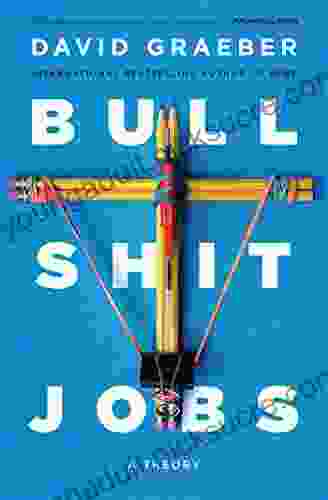
 Gabriel BlairDecoding Bullshit Jobs: A Deep Dive into David Graeber's Revolutionary Theory
Gabriel BlairDecoding Bullshit Jobs: A Deep Dive into David Graeber's Revolutionary Theory Ira CoxFollow ·2.6k
Ira CoxFollow ·2.6k Charles BukowskiFollow ·14k
Charles BukowskiFollow ·14k Felix CarterFollow ·8k
Felix CarterFollow ·8k Branden SimmonsFollow ·8.6k
Branden SimmonsFollow ·8.6k Douglas PowellFollow ·10.8k
Douglas PowellFollow ·10.8k Bret MitchellFollow ·12k
Bret MitchellFollow ·12k Willie BlairFollow ·3.8k
Willie BlairFollow ·3.8k Ibrahim BlairFollow ·19.8k
Ibrahim BlairFollow ·19.8k
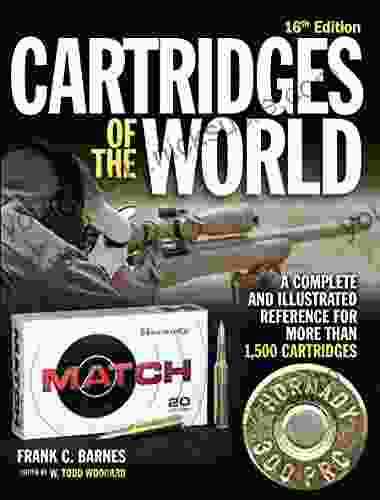
 Devon Mitchell
Devon MitchellDelve into the Comprehensive World of Cartridges: A...
In the realm of firearms, cartridges stand...
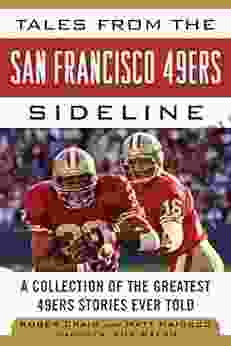
 Joseph Conrad
Joseph ConradTales From The San Francisco 49ers Sideline: A Look...
The San Francisco 49ers are one of the most...

 Ervin Bell
Ervin BellArcGIS Desktop 10: A Comprehensive GIS Tutorial for...
Geographic information...
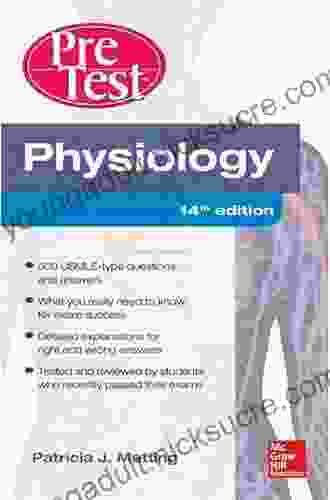
 Reed Mitchell
Reed MitchellPhysiology Pretest Self Assessment And Review 14th...
Accurately gauge your physiology knowledge and...
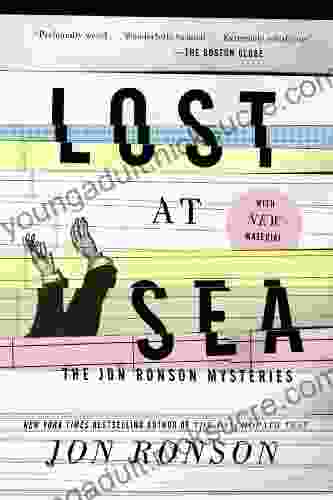
 Devin Ross
Devin RossLost At Sea: The Unbelievable True Story of the Jon...
In 2009, journalist Jon Ronson set out to...
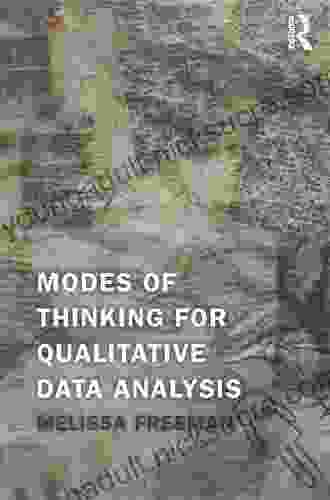
 Shane Blair
Shane BlairModes of Thinking for Qualitative Data Analysis
Qualitative data analysis is a complex...
4.6 out of 5
| Language | : | English |
| Text-to-Speech | : | Enabled |
| Enhanced typesetting | : | Enabled |
| Word Wise | : | Enabled |
| Print length | : | 881 pages |
| File size | : | 11226 KB |
| Screen Reader | : | Supported |


